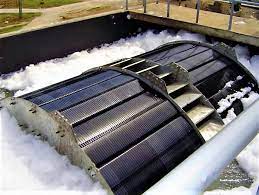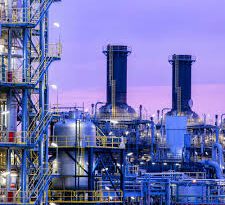Casella Waste Services Complete Guide
Many companies nowadays aspire to lower their waste management expenses while committing to environmental sustainability. To do this, they want a partner who can offer creative, effective trash recovery solutions that are also ecologically benign, and who has the know-how to guarantee little (if any) disruption to regular business operations.
In 1975, a single truck business called Casella was established in Rutland, Vermont. Casella established Vermont’s first recycling facility in 1977. Over 40 years have passed with the same management continuing to lead the business.
According to them, our geographic reach has increased over time to six states. By giving resources new life, we hope to add value for our clients, our communities, and our business.
Casella offers knowledge and services in solid waste resource collection, recycling, organics, energy recovery, and disposal to residential, commercial, municipal, and industrial customers.
Integrated and non-hazardous solid waste services are offered throughout the Eastern United States by Casella Waste Systems, Inc. The company generates steam, produces finished goods using recyclable materials, and provides collection, transfer, disposal, and recycling services.
Do you frequently wonder what goes in your recycling container as you make an effort to manage your home waste responsibly?
Together with the Department of Public Works and the York Recycling Committee, Casella Waste Systems, which has a contract with the Town of York to pick up our recyclables (as well as our trash), has developed new, more precise guidelines on whether and how to recycle kitchen waste and other household waste.
Read Also : Wastewater Treatment Options
Casella recycle their waste and unwanted products so they can be processed and transformed into another valuable product, eliminating the need to place them in landfills (which release the greenhouse gas methane) or transport them to incinerators (which emit toxins that poison our air and water). A recycling system encourages reuse and sustainability while reducing trash.
The recyclables that Casella’s vehicles collect are delivered to a sizable sorting facility, where staff members go through piles of gathered materials and eliminate those that are wet, entangled, or otherwise unfit for recycling.
Items that have been properly sorted can be sold in bulk to other businesses and remanufactured into other marketable products.
However, if a fresh truckload of recyclables has wet cardboard or other pollutants, it is useless to the Casella firm and loses its value.
According to them, we can help our municipality save money and ensure the success of this recycling, waste-reduction, and pollution-reduction system by adhering to Casella’s recycling requirements, which are mentioned below. It benefits our communities, our environment, and our families more.
Casella will accept:
▪ Dry cardboard, which includes corrugated, box board, dry-food boxes, paper rolls, and egg cartons; there is NO food waste in these materials.
▪ Paper, including bags, office paper, junk mail, envelopes, magazines, and newspapers.

▪ Plastics: Empty and clean heavy-duty plastic tubs, bottles, jugs, and lids from the kitchen, bathroom, and laundry; affix tiny plastic caps to bottles and jugs.
▪ Metal cans: clean, empty aluminum and steel cans, as well as foil.
* Glass: clean, empty bottles and jars for food and beverages.
Casella recommends that we take note of the following changes:
▪ Only the above-mentioned thick plastics should be disposed of in your recycling bin. Food and takeout containers made of single-use “clamshell” plastic are not recyclable.
▪ There shouldn’t be any loose objects that are less than two inches (except small reattached caps).
▪ Cardboard needs to be dried and flattened. If rain is predicted, cover the items or store them for pickup later.
▪ Waxed dairy, broth, and juice containers, as well as other waxy cardboard or paper items, are not permitted.
▪ Waxed dairy, broth, and juice containers, as well as other waxy cardboard or paper items, are not permitted.
▪ Shredded paper is not acceptable.
Although Casella is working to improve the recycling process, they assert that “waste reduction and reuse can be even better than recycling.” Every opportunity should be used to reduce and reuse.
With its main office in Rutland, Vermont, Casella Waste Systems, Inc. offers resource management knowledge and services to residential, commercial, municipal, institutional, and industrial clients. It specializes in solid waste collection and disposal, transfer, recycling, and organics services in the northeastern United States.
What Casella says doesn’t belong in your recycling bin;
The goods listed below cannot be recycled at our facilities. And to make matters worse, they can substantially impede the recycling process. Please check to make sure none of these items are in your trash. Tell your friends as well!
(1) Plastic bags: They encircle the sorting tools.
Instead, recycle your bags at a grocery or retail establishment that participates.
Plastic bags can be recycled at grocery and retail establishments that take part, but they don’t belong in your recycling bin. You’ll see that a lot of stores have a bag-collection container near the entrance.
(2) Bagged recyclables: At the recycling facility, they resemble too much rubbish.
Keep it loose instead! Don’t put your recyclables in bags.
Please just drop your recyclables into the trash if you collect them in plastic bags. After that, you can either throw the plastic bag in the garbage or, better yet, take it to a grocery or retail establishment that participates in a bag collection program.
You can also collect your recyclables in a reusable container or box that you periodically empty into your curbside recycling container.
(3) Textiles/Clothes: They encircle the sorting tools.
Instead, donate them to a local reuse center, drop box, or clothes drive.
You can help those in need while reducing trash by donating your used clothing. The Salvation Army, Planet Aid, Career Gear, Goodwill, and Vietnam Veterans of America are some of the national charities that take donations.
You can donate closer to home by supporting your neighborhood churches, homeless shelters, thrift shops, and clothing drives. Old towels, blankets, and rags are often appreciated by animal shelters.
(4) Electronics: During sorting, they break. For our employees, batteries and chemicals are hazardous.
Find a local retailer take-back program or electronic trash recycling instead.
While they don’t belong in your recycling bin, electronics don’t always need to be thrown away. For opportunities for recycling and donating your used gadgets, search online.
(5) Food waste and liquids: They make other materials less recyclable.
Instead, research local food waste programs or discard.
You might have access to a curbside pickup service or a drop-off location that accepts food waste depending on where you live. A lot of houses compost some of their food waste in the backyard. If your community offers discounts on backyard composting bins, inquire with the county extension office or solid waste district.
Read Also : Motivational Factors for Recycling and Reuse
(6) Batteries: They pose a risk to employees, the environment, and fires.
Instead, visit earth911.com to determine your best disposal alternative.
Batteries shouldn’t be recycled because they contain substances that could be harmful if not disposed of appropriately.
(7) Scrap metal: These things harm the equipment used for sorting.
Find a local scrap metal recycler instead.
Although scrap metal should not be recycled, local recyclers frequently accept both ferrous and non-ferrous metals and may even pay you for them. Find local recyclers of scrap metal by searching online.
In conclusion, waste reduction and reuse may be even more beneficial than recycling. Reduction and reuse should always be prioritized.



